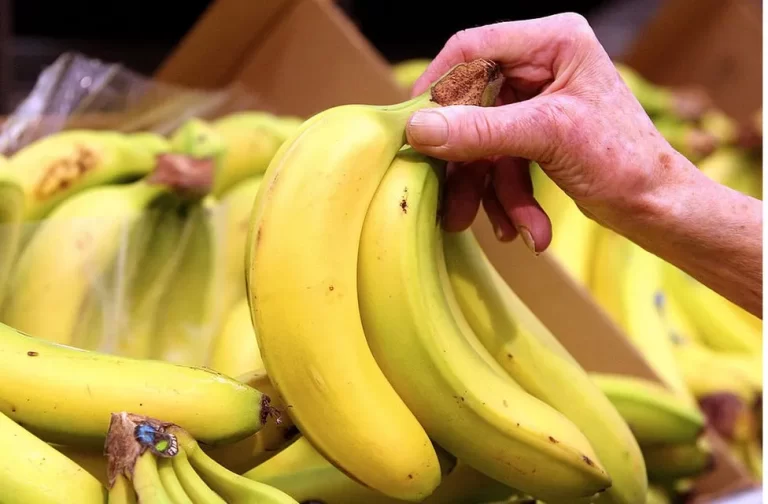Bananas are set to get more expensive as climate change hits a much-loved fruit, one of the world's top experts from the industry tells BBC News.
Pascal Liu, senior economist at the World Banana Forum, says climate impacts pose an “enormous threat” to supply, compounding the impacts of fast-spreading diseases. The forum meets in Rome on Tuesday to tackle challenges facing the fruit.
Some UK shops have recently experienced banana shortages due to sea storms. In its natural yellow wrapper, the nutritious and tasty banana is the world's most exported fruit.
The UK alone imports around 5 billion bananas ever year, with around 90% sold through the major supermarkets. Last week saw shortages of bananas in several UK supermarkets, which retailers said were down to storms at sea, delaying supplies.
Most consumers won't have noticed, according to Prof Dan Bebber from the University of Exeter, who has studied efforts to make bananas more sustainable.
“The supply chain fluctuates but the UK is actually quite good at buffering those types of effects,” he told BBC News.

“Mainly, because the ripening centres can accelerate or decelerate the rate at which they ripen the bananas when they arrive, which helps to buffer those types of fluctuations.” But while banana supplies can cope with short-term weather events like this, experts are concerned about the growing threats from a warming world, and from the diseases that are spreading in its wake.
“I think climate change is really an enormous threat to the banana sector,” said Mr Liu of the World Banana Forum, a UN umbrella group that brings together industry stakeholders including retailers, producer countries, exporters and research institutions.
As well as severe weather impacting production, bananas are sensitive to temperature rises which could wipe out crops in some locations. Perhaps the biggest immediate threat is the fact that rising temperatures are helping to spread disease.
The one causing the most worry is Fusarium Wilt TR4, a fungal infection, which has moved from Australia and Asia to Africa and now to South America. Once a plantation is infected, it kills all the banana trees and experts say it is extremely hard to get rid of.
The fungus has also mutated to threaten the Cavendish, the world's favourite banana variety.
“We know that the spores of this Fusarium Wilt are extremely resistant, and they can be spread by flooding, they can be spread by strong winds,” said Mr Liu.
“So, this type of phenomenon will disseminate the disease much faster than if you had more normal weather patterns.” Producers are also facing pressures from rising costs of fertilisers, energy and transport as well as problems in finding enough workers.
Taken together with the impacts of climate change on supply, prices in the UK and elsewhere are likely to go up – and stay up.
“There will be some price increases, indeed,” said Mr Liu. “If there's not a major increase in supply, I project that banana prices will remain relatively high in the coming years.” Among the issues that the banana industry will discuss at its gathering in Rome is the critical question of sustainability.
Consumers are increasingly looking to buy bananas and other commodities that are produced in a sustainable way. For banana growers this means not only making their means of production greener, but also paying independent examiners to certify that their fruit are sustainable.

“These regulations are a good thing in a way because they help producers seize the opportunity of making their production systems more sustainable,” said Mr Liu.
“But of course, they also come with costs for producers because they require more control and monitoring systems on the part of the producers and the traders. And these costs have to trickle down to the final consumers.”
— CutC by bbc.com


